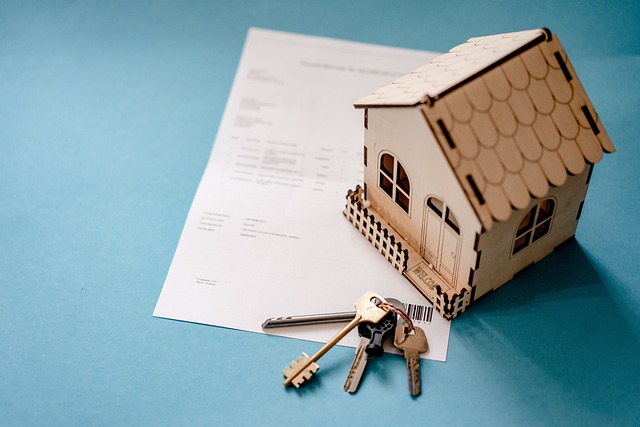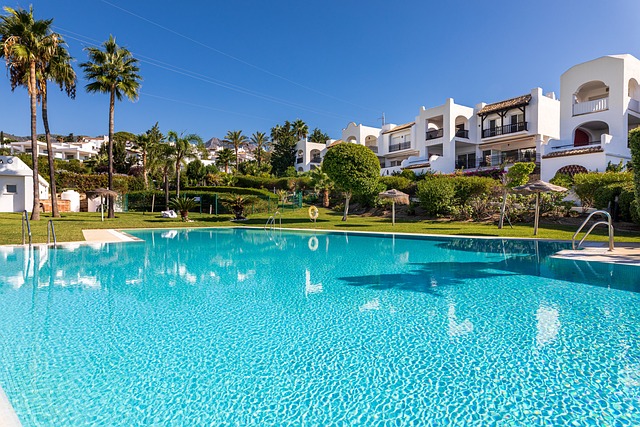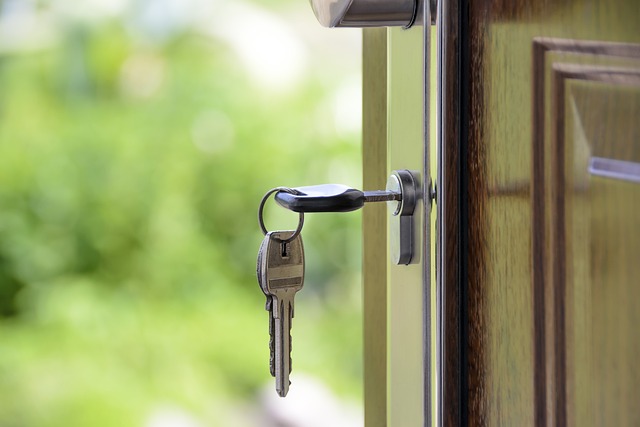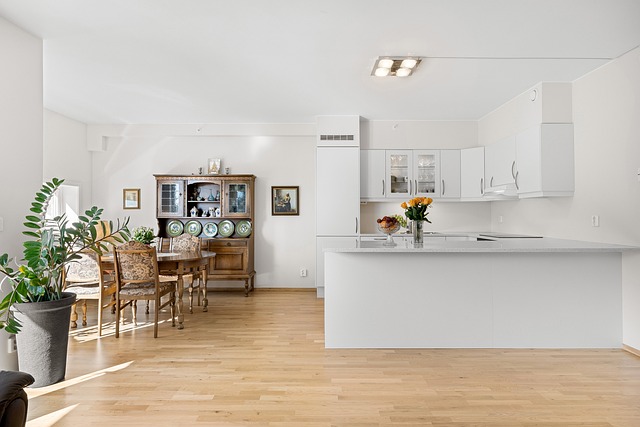Executive Condos (ECs) in Singapore offer a unique long-term investment and living opportunity, particularly after the five-year mark post-purchase for upgraders and first-time homeowners. These properties bridge the gap between public housing and private condominiums, with leasehold tenure lasting 99 years, which influences their valuation and marketability. After five years, ECs can appreciate in value, making them attractive for resale or upgrading. The potential for capital appreciation is enhanced by factors such as the property's location, developer reputation, unit features, and community appeal, which are further amplified by surrounding infrastructure improvements and amenities. Financially, ECs offer different loan-to-value (LTV) ratios compared to freehold properties, affecting their attractiveness in securing loans. Prospective buyers must weigh the impact of lease duration on value against their financial planning and investment timeline, considering the distinct advantages and challenges of leasehold versus freehold tenures within Singapore's dynamic property market. Investors should carefully consider these aspects when evaluating an EC as a long-term investment post-five-year threshold.
navigating the nuances between Executive Condo (EC) leasehold and freehold ownership post-five years can significantly impact an individual’s long-term real estate strategy. As one considers the implications of EC living after this pivotal milestone, it’s crucial to understand the distinct characteristics that set leasehold and freehold properties apart. This article delves into the intricacies of ECs beyond their initial lease term, offering a detailed analysis of the ownership types’ benefits, potential value appreciation, and financial considerations. Whether you’re an existing owner or a prospective buyer, the insights provided will aid in making an informed decision tailored to your personal investment goals and lifestyle preferences.
- Understanding Executive Condos: A Comprehensive Guide After 5 Years
- Executive Condo Leasehold vs Freehold Ownership: Key Differences to Consider
- The Appeal of Executive Condos: Benefits Beyond the First Five Years
- Long-Term Value: Assessing the Potential Appreciation of Executive Condos Post-Five Years
- Financing Your Executive Condo: Leasehold vs Freehold Considerations After 5 Years
- Making an Informed Decision: Pros and Cons of Executive Condo Leasehold vs Freehold After Five Years
Understanding Executive Condos: A Comprehensive Guide After 5 Years

ononseamp;Executive Condoson;Afterblicononononononononononononononononononononononononononononononon
Executive Condo Leasehold vs Freehold Ownership: Key Differences to Consider

In Singapore’s property market, distinguishing between Executive Condo (EC) leasehold and freehold ownership is crucial for prospective buyers, especially when considering the long-term implications of their investment. Executive Condos, designed primarily for middle-income families, offer a residential alternative to public housing. Unlike traditional condominiums, ECs can only be purchased by Singaporeans or permanent residents after five years from the date of their completion, which makes them an attractive option for those looking to upgrade from HDB flats within a specified timeframe. The leasehold nature of these properties means that the land on which the EC stands is held by the developer for a set number of years, typically 99 years, after which the state, in this case, the Housing & Development Board (HDB), will take back the land. This contrasts with freehold ownership, where property owners have perpetual rights to their land and property, regardless of the length of time they’ve occupied it.
When evaluating Executive Condo leasehold versus freehold properties, potential buyers must consider factors beyond the duration of land tenure. Leasehold properties, such as ECs, may appreciate in value over time, especially if they are located in sought-after areas or if demand for such units increases. However, the remaining lease term can significantly influence the property’s valuation and future liquidity. Freehold properties, on the other hand, offer greater flexibility and security of tenure, which can be advantageous for those who plan to hold onto their property for an extended period. The decision between an EC leasehold and a freehold property hinges on individual financial planning, investment horizon, and personal preferences. Those opting for an EC should be mindful of the remaining lease when the five-year window opens, as this will impact their ability to sell or refinance the unit later on. Meanwhile, freehold properties provide a sense of permanence and may appeal to those who prioritize long-term stability and potential for future capital appreciation.
The Appeal of Executive Condos: Benefits Beyond the First Five Years

Executive Condos (ECs) in Singapore offer a unique blend of benefits that extend well beyond the initial five-year mark after purchase. Unlike traditional condominiums, ECs are specifically designed for Singaporeans and permanent residents who do not own a HDB flat. This targeted approach ensures that the amenities and facilities within these developments cater to the needs of their residents, often resulting in high standards of living. Post the five-year threshold, the value proposition of an EC becomes even more pronounced. As the leasehold tenure matures, the capital appreciation potential of an EC can be significant, making it a lucrative investment for future resale or upgrading opportunities. The appeal of ECs after 5 years is also underpinned by their strategic locations and the completion of any nearby infrastructure projects, which can enhance the property’s value. Moreover, the community living aspect within these developments often strengthens over time, fostering a sense of belonging and camaraderie among residents. The ability to enjoy high-quality lifestyle amenities without the prohibitive costs associated with freehold properties makes ECs an attractive option for a diverse demographic, from young families to professionals looking for a balance between affordability and luxury.
Long-Term Value: Assessing the Potential Appreciation of Executive Condos Post-Five Years

When considering the long-term value of an Executive Condo (EC) in Singapore, particularly after a span of five years, potential owners and investors often assess the potential appreciation of these properties. The unique structure of ECs, which caters to both upgraders and first-time homeowners with higher income ceilings compared to public housing, positions them distinctly in the property market. Over time, as with any real estate asset, the value of an EC can be influenced by a myriad of factors such as location, development maturity, market trends, and economic conditions.
The appreciation potential of an Executive Condo after five years hinges on its proximity to mature estates or future growth areas, the track record of the developer, unit size and layout, as well as the overall attractiveness of the estate. Factors like infrastructure developments, transportation network enhancements, and the introduction of new amenities can significantly boost property values. Additionally, the EC’s age and the state of its maintenance and facilities can affect desirability among potential buyers. In this context, it’s crucial to evaluate how well an Executive Condo has been managed and maintained by its residents and the managing agent. A well-maintained EC in a sought-after location with positive growth indicators is likely to appreciate well post-five years, making it an attractive option for those looking at long-term property investment within Singapore’s vibrant real estate landscape.
Financing Your Executive Condo: Leasehold vs Freehold Considerations After 5 Years

When considering the purchase of an Executive Condo (EC) after 5 years, one of the key distinctions to weigh is between leasehold and freehold tenure. Financing your EC will be influenced by this choice, as the tenure affects both the property’s value over time and your eligibility for certain types of financing. For leasehold ECs, the remaining lease can either appreciate or depreciate based on market conditions and the original lease term. After 5 years, if you decide to sell, the leasehold duration left will be a significant factor for potential buyers. Banks typically offer higher loan-to-value (LTV) ratios for freehold properties, which can make securing financing easier compared to leasehold properties. However, for leasehold ECs, the Singaporean government provides Housing & Development Board (HDB) loans to eligible applicants, making it more accessible. It’s crucial to consider the implications of the lease duration as the loan-to-value ratio for leasehold housing can be lower due to the diminishing lease length over time. After 5 years, if you still hold the lease, the remaining lease will impact your equity and the LTV ratio that financial institutions are willing to offer. Therefore, when financing your EC after this milestone, it’s essential to assess the future value of the lease and how it aligns with your long-term financial planning. Whether opting for a leasehold or freehold property, always ensure you understand the terms of your mortgage and how they may change as your lease diminishes over time.
Making an Informed Decision: Pros and Cons of Executive Condo Leasehold vs Freehold After Five Years

When considering the long-term implications of purchasing an Executive Condo (EC) after five years, potential buyers must weigh the distinct advantages and drawbacks of leasehold versus freehold properties. Leasehold ECs, offered to Singaporean families under the Housing & Development Board (HDB), come with a land lease from the government that can span up to 99 years. After this duration, the land reverts to the state. A key advantage of leasehold properties is their affordability, allowing buyers to enter the property market without the higher initial investment required for freehold properties. However, as time passes, particularly after five years, the remaining lease length diminishes, which may affect resale value and the long-term viability of the investment.
On the other hand, freehold properties offer a perpetual land lease, making them a more attractive proposition for those looking for a long-term asset that could potentially appreciate in value over time. The absence of a lease expiration date provides peace of mind for owners planning to hold onto their property for an extended period. However, the upfront costs associated with freehold properties can be substantial, often priced higher than their leasehold counterparts. This financial commitment requires careful consideration and typically suits buyers who prioritize long-term stability and ownership without the concern of diminishing lease value. In both cases, the decision should take into account one’s personal financial planning, investment goals, and the intended duration of ownership. Prospective EC owners after five years should evaluate their individual needs and the evolving market conditions to make an informed decision that aligns with their long-term housing aspirations and investment strategy.
